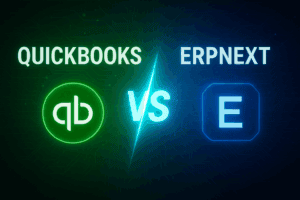SSL Certificates digitally bind a cryptographic key to a website, which makes it more secure in terms of data hosting by activating secure connections
Google is well known for its stance on consumer security and privacy. The company is always striving to improve its safety measures for the users online. Google’s push towards safer web surfing experience has reached a new milestone this year, when it announced that the websites without an SSL certification will be marked as Not Secure.
What is SSL?
SSL stands for Secure Socket Layer, and it essentially encrypts the connection between the user’s device and the website. This secure connection is represented as a lock symbol in the URL bar, and the website is preceded by the “https://” tag instead of the usual “http://” tag.
This encryption ensures that any data provided by the user on the website, such as mail id, online transactions and other sensitive information will be hidden from prying eyes. Thus, an SSL certification is mandatory for any e-commerce sites, or websites that have a login/ online transaction option.
SSL essentially authenticates a website. Obtaining an SSL certification involves providing necessary details in order to verify the authenticity of the website. Thus an SSL certification also offers an assurance of your website’s credibility.
Types of SSL certification
Not all SSL certificates are the same, and the variation is based on the number of domains and subdomains owned. This not only varies in costs but also in functionality. The different types of SSL certification based on this requirements include-
• Single: Here only one qualified domain name or subdomain name I secured by the SSL certification.
• Wildcard: This covers one domain name and the subdomains under the main domain name.
• Multi-Domain: This covers multiple domain names.
Setting up an SSL on a website requires multiple authorization and validations, such as-
• Domain validation: This is one of the least expensive encryption method. It also involves less bureaucracy when it comes to ownership verification and domain name registration. It takes anywhere between a few minutes to a couple of hours to obtain this certification.
• Organization validation: This validation involves authentication of the owner’s name and address apart from basic encryption and domain name registration. This is quite a tedious process and may take up to a few days.
• Extended validation: Extended Validation offers the highest degree of security. Here, a thorough examination of the website and the encryption are conducted before the security licensing is issued. Apart from the entities of the Domain Validation and Organization Validation, this also incorporates several authentication processes involving the legal, physical and operational affirmations as well. Owing to the complexity of the process, it might take you a few weeks before you receive this certification.
Who needs an SSL certification?
Any website that hosts, receives, processes, collects, stores or displays private user data should have an SSL certification. Having encrypted data will help keep your data safe, and will reduce chances of compromise, loss and misuse. Some such sensitive information includes logins/ passwords, financial information, personal data, legal documents, medical records, etc.
If you have a website that hosts any such information, then the website should be SSL certified. Your visitors will surely look for the https:// tag and the green lock symbol on the URL bar to assess the security assurance of the website. If these are lacking, then it becomes pretty evident that your website is not secure enough to handle such sensitive information.
Obtaining a SSL certification
SSL certificates are issued by the Certificate Authorities (CA). This organization aims to accept certification application and authenticates them in the proper channels. When choosing the right SSL provider it is important to consider the fact that web browsers usually keep track of a cached list of trusted CAs. If you obtain a certificate that is not from an entity that is on the list, your browser will automatically send a security warning to the visitors. Hence, it is recommended that you opt from the approved list of service providers.
How will your visitors know that your website has an SSL certificate?
Some websites that do not host sensitive data do not need a SSL certification. However, if your website hosts secure user data, it is necessary for your visitors to know that your website is secure enough to handle this sensitive information. Some visual cues that lets your visitors know that your website is indeed secure are-
• Padlock symbol on the left of the URL
• The website URL will have a https prefix instead of a http
• The trust seal
• An EV SSL certificate issued website will have a green address bar
At Webtree Software Solutions, we help our clients to get the right SSL certification for their websites in order to secure it. For more information about our full range of digital marketing services, do visit our website at www.webtreeonline.com





